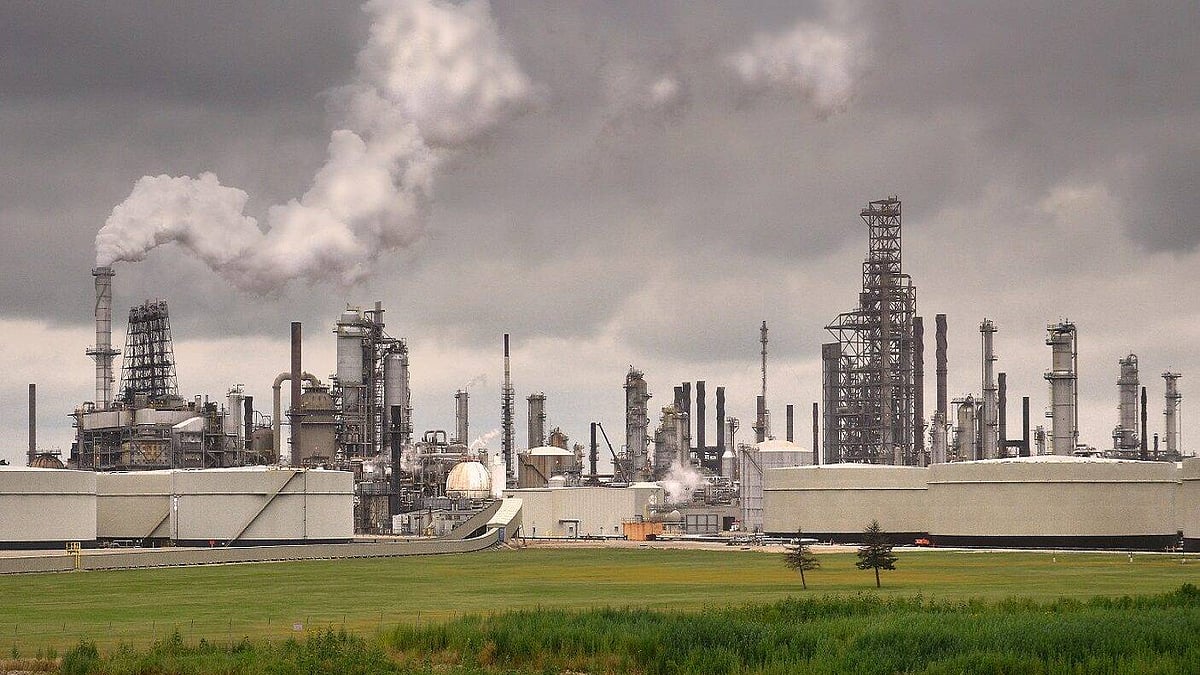Environment
UN warns progress too slow to avert worst climate impacts despite emissions drop
2025 NDC report shows global emissions ‘bending downwards’ but calls for faster, fairer action

Ten years after the Paris Agreement was adopted, the world is making measurable progress in cutting greenhouse gas emissions but still not fast enough to avert the worst consequences of climate change, according to a new United Nations Climate Change report.
The 2025 NDC (Nationally Determined Contributions) Synthesis Report, released on Tuesday, found that 64 updated national climate plans submitted between January 2024 and September 2025 would collectively reduce emissions by 17 per cent below 2019 levels by 2035.
While this marks 'real and increasing progress', the report said that “major acceleration is still needed in terms of delivering faster and deeper emission reductions and ensuring that the benefits of strong climate action reach all countries and peoples.”
NDCs are climate action plans under the Paris Agreement that outline how each country intends to cut emissions and adapt to climate impacts. Together, they determine whether the world can meet its goal of limiting temperature rise to 1.5°C above pre-industrial levels.
The deadline for new submissions was 10 February 2025, but over 90 per cent of countries missed it. Major emitters including China, India, the EU, Indonesia, Iran and Saudi Arabia are yet to file their updated plans.
The 64 plans currently submitted — covering about 30 per cent of global emissions — project a decline from 13.9 billion tonnes of CO₂ equivalent in 2030 to 13 billion tonnes by 2035, with emissions expected to peak before 2030. However, the UN said this dataset is too limited to draw global conclusions.
UN Climate Change executive secretary Simon Stiell said the findings show both progress and urgency.
“Ten years after we adopted the Paris Agreement, we can say simply that it is delivering real progress. But it must work much faster and fairer — and that acceleration must start now,” he said.
Published: undefined
The report noted that 89 per cent of the new climate plans include economy-wide targets, 73 per cent feature adaptation components, and 70 per cent integrate a “just transition” framework to link climate action with social and economic protections.
Implementing these plans would require between USD 1.97 trillion and USD 1.98 trillion, including USD 1.34 trillion for mitigation and USD 560 billion for adaptation.
Antarctica’s 35°C temperature spike raises fears of irreversible change
Scientists warn that parts of the Earth system may already be nearing irreversible tipping points, with Antarctica showing some of the most dramatic anomalies ever recorded. Earlier this year, air temperatures over parts of East Antarctica soared up to 35°C above seasonal averages, according to multiple studies.
The anomaly, described by climatologists as “unprecedented in recorded history”, has alarmed researchers who say such warming could trigger cascading effects, including accelerated ice-sheet melt and global sea-level rise.
The rapid decline in Antarctic sea ice — coupled with the loss of multi-year ice and destabilisation of glaciers such as Thwaites and Pine Island — has been described by scientists as a “seventh planetary warning”, signalling that the planet is edging closer to self-reinforcing climate feedbacks.
A recent IPCC assessment also cautioned that abrupt changes in ice-sheet stability, ocean circulation and permafrost thaw “cannot be ruled out”. Experts warn that the 1.3°C of global warming already locked in since the pre-industrial era is amplifying these extreme deviations.
“Antarctica’s 35-degree spike is not just a statistic — it’s a symptom of a system under strain,” said climate scientist Dr. Daniela Flocco in a recent paper.
“The poles are warning us of global consequences.”
With COP30 scheduled in Belem, Brazil, this November, the UN has urged countries to signal renewed commitment to climate cooperation. Scientists warn that keeping global warming below 1.5°C will now require emissions to fall by nearly 60 per cent by 2035 — a goal that remains increasingly out of reach without radical acceleration in global efforts.
With inputs from PTI
Published: undefined
Follow us on: Facebook, Twitter, Google News, Instagram
Join our official telegram channel (@nationalherald) and stay updated with the latest headlines
Published: undefined